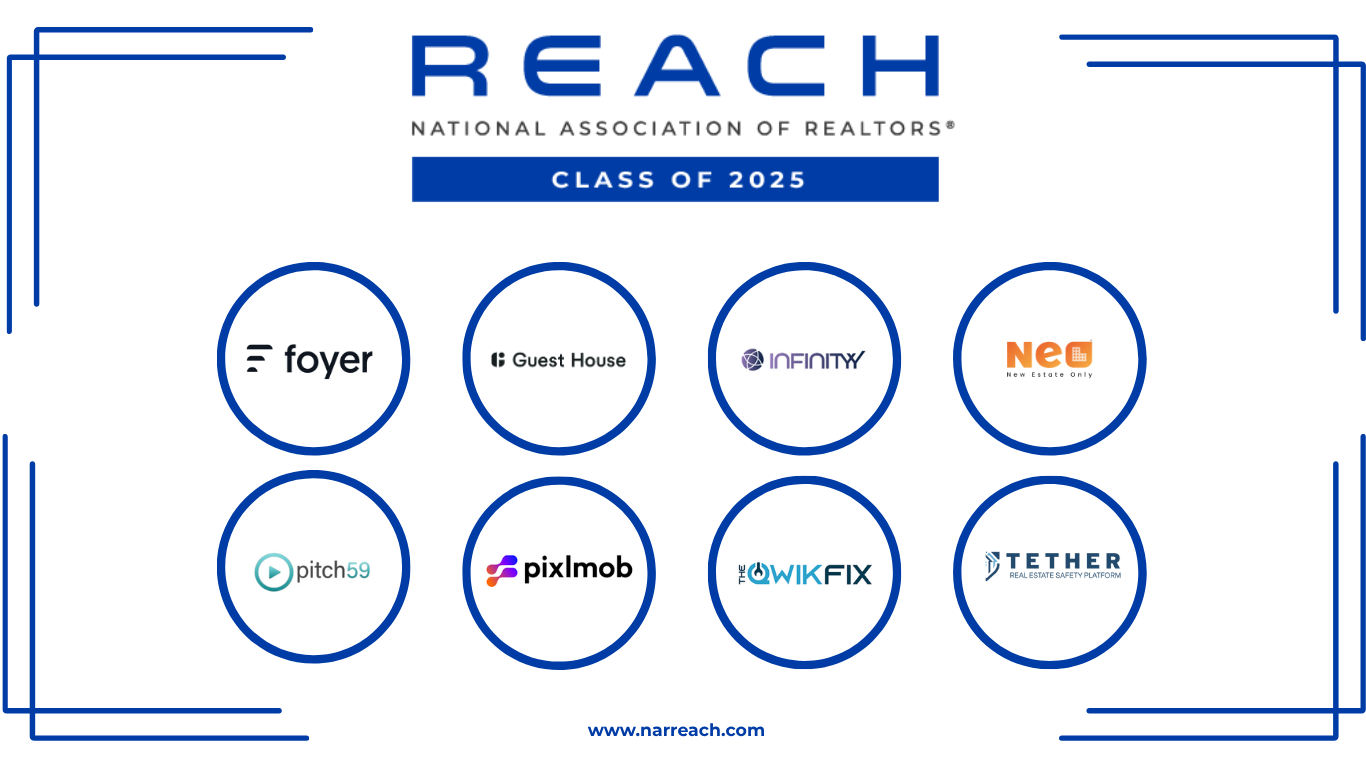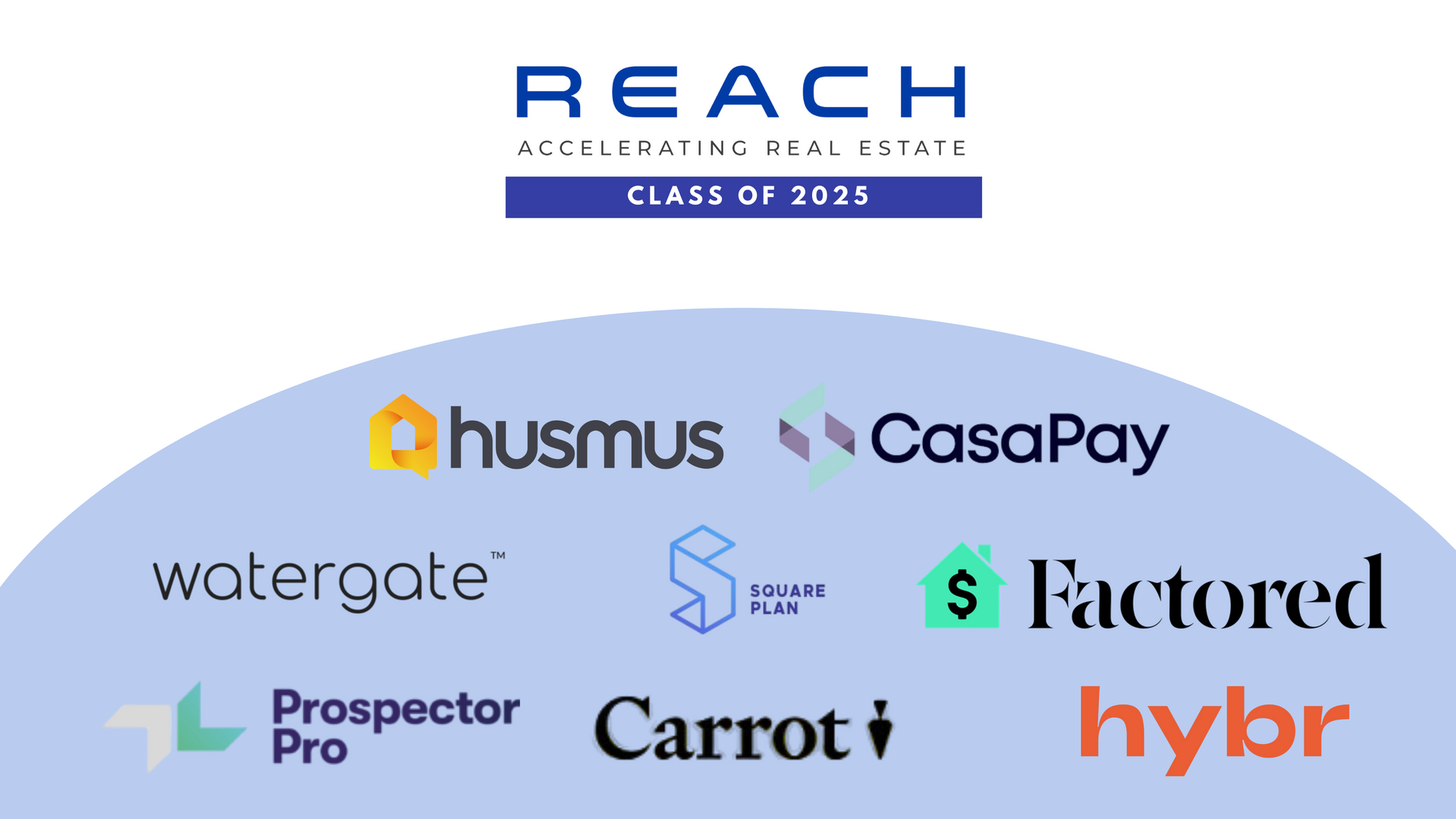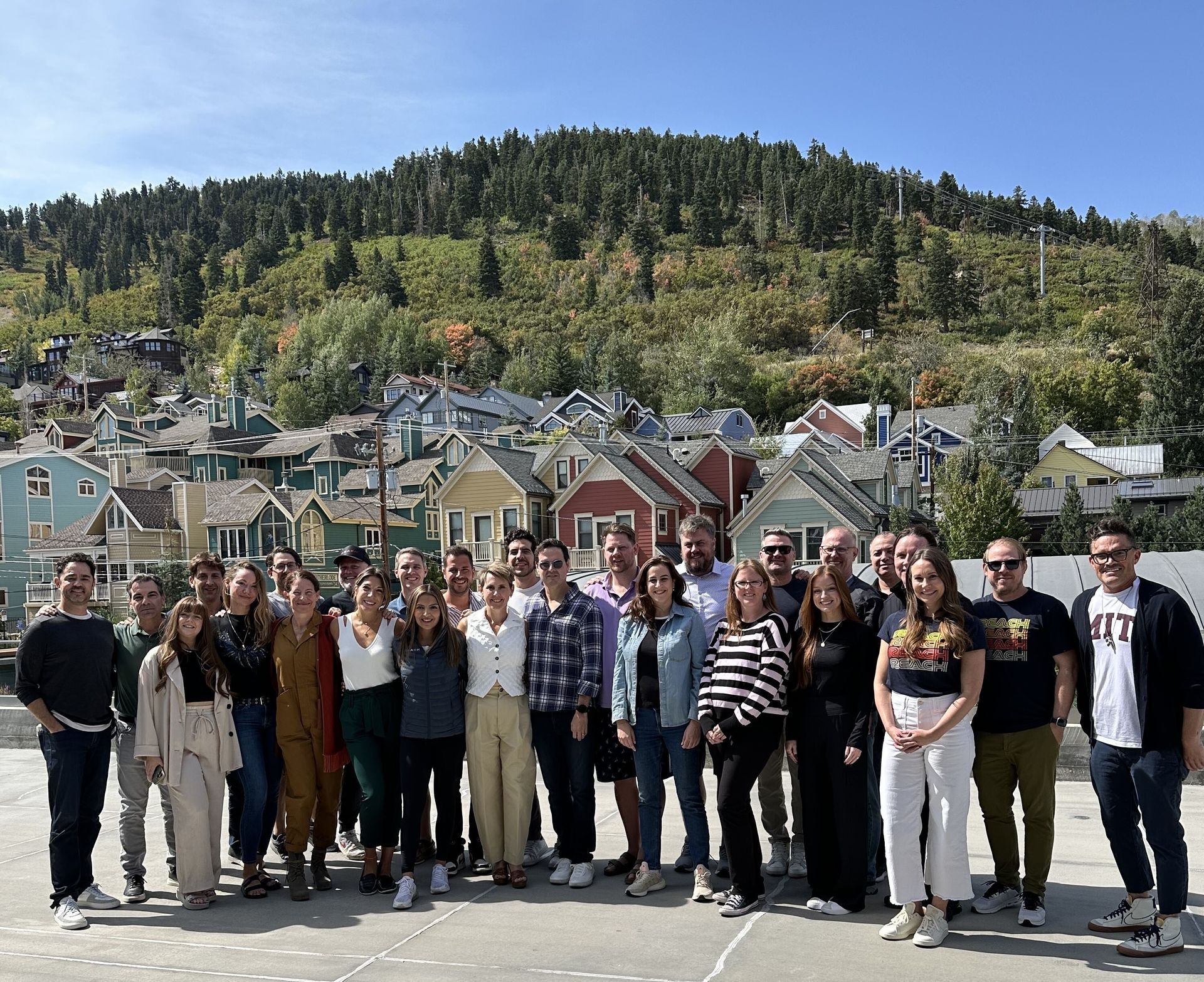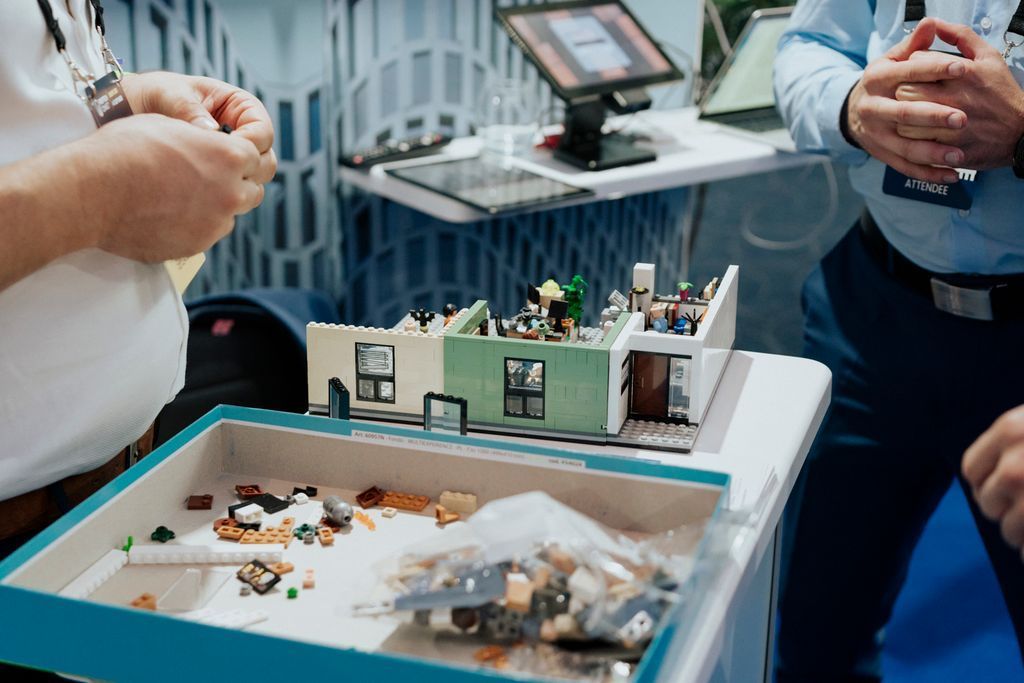Beyond the Box – Season 1 – Episode 6 – David Steckel – Co-founder and CEO at Setter
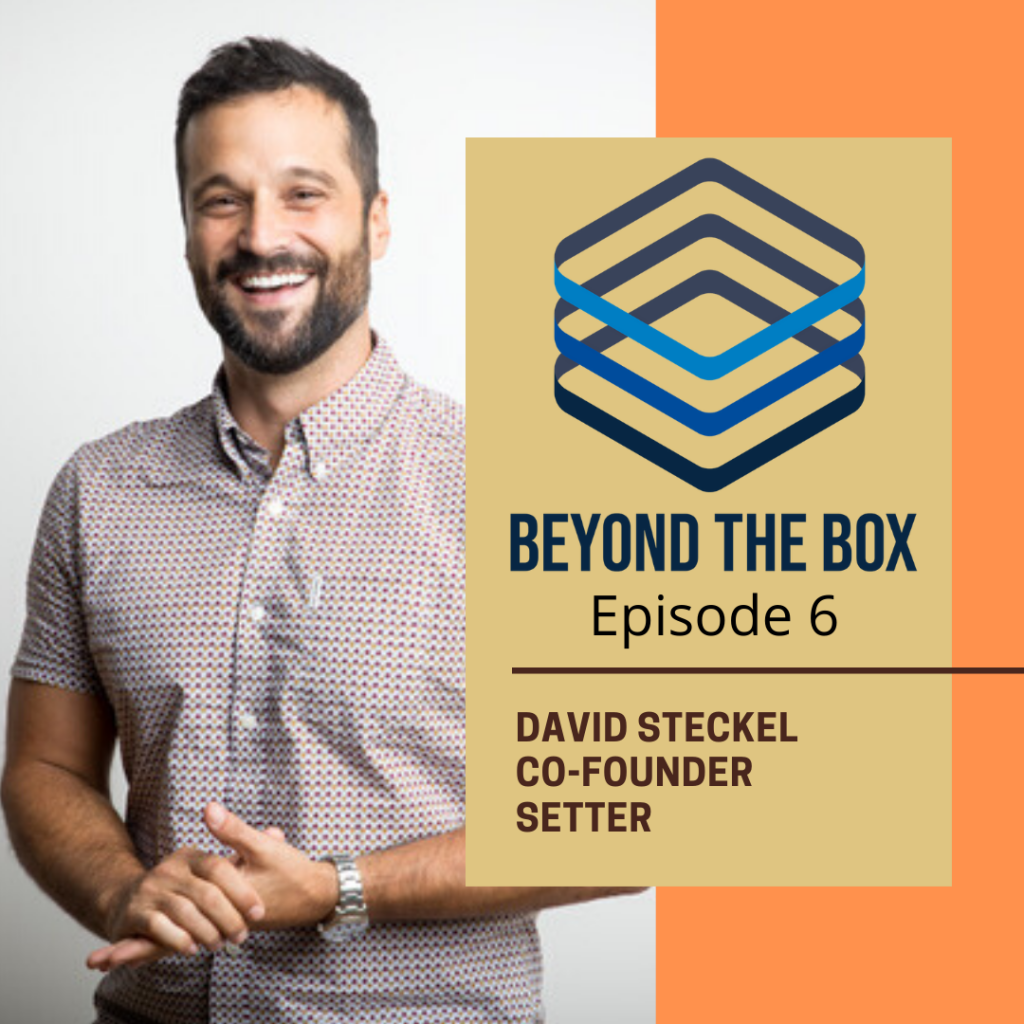
Beyond the Box – Season 1 – Episode 6 – Featuring Co-founder and CEO at Setter, David Steckel.
In the sixth Beyond the Box episode, Mike McAra has the pleasure of talking with Co-founder David Steckel about the ride to get venture-backed by some of the biggest names in the valley, only to have COVID come and significant impact his business all while closing their Series A round.
Watch/listen here to get the scoop on Setter and how David and his team are re-imagining the post-transaction customer experience.
“I was a homebuilder. So, people just wouldn’t let me go away; I was always continuing to do work for them after the fact. And so, it got to the point where I was also doing work for the Brookfield’s of the world, and I was introduced to the facilities maintenance, so I was doing it for army’s and hospitals. And I sort of thought, “Okay, I need to take facilities maintenance and bring it to the residential market.”
Full Transcript of the Show
Mike McAra – Beyond the Box Host: Perfect, so we are rolling. So, we have David Steckel with Setter. Really excited to have you on the show, thanks for coming on!
David Steckel – CEO, Setter: Thanks for having me.
Mike McAra – Beyond the Box Host: Awesome, awesome. So obviously, we’re in a new world with Covid going on, and clearly that’s changing businesses and it’s impacting people right now. We can get to that a little bit later, but before we get to that, what I would love to do is just sort of have you give people an overview for people of what is Setter. So, what is Setter David?
David Steckel – CEO, Setter: Sure! So, Setter is a virtual property management and concierge platform, to help people take care of their homes so they don’t have to.
Mike McAra – Beyond the Box Host: Okay. So…
David Steckel – CEO, Setter: What does that mean, right? So, imagine you’re in a condo, or imagine you’re in a first class building downtown. They actually have companies that take care of everything for them. From the window cleaning, to the management of capital… CAPEX expenditure, to snow plowing, gardening, etcetera. I’ve always found that homeowners could find value in a service like that. Because truthfully, owning a home is like owning a bunch of complex assets that need to be maintained and then on top of that, there’s always upgrades and sometimes things go wrong. So, is there a trusted source for homeowners to go to? No. There’s a lot of marketplaces where they can go to and negotiate with the pros themselves, but the idea is, is that homeowners are busy. And they have jobs, they have families. Sometimes owning a home can feel like another job. And so, Setter has always been here to help our homeowners. We’re very much a “do it for me” company, rather than a “DIY” company. And that’s also part of how we differentiate.
Mike McAra – Beyond the Box Host: Love it. Okay, so just to kind of give me an example of that. So, this weekend, I was doing some gardening and I needed to take care of some landscape maintenance first sort of thing. And I’m like, who do I call to go on this sort of whatever it is, Kijiji or Craigslist or pick your favourite online listing. Instead, with Setter, I could just go onto my Setter account, and say, “Hey I need this taken care of” or I could just talk to my person.
David Steckel – CEO, Setter: Well, ideally, you know, it’s April. We would have been messaging you since March to say, “Hey, it’s time to start thinking about these things…” These are in your geography; these are the things you should take care of. This is why you need to pick up the leaves, actually you would have done them up in October.
Mike McAra – Beyond the Box Host: Whoops, ha-ha.
David Steckel – CEO, Setter: So, if you’re going to consider sodding and having good grass for the summer, you need to act now. So, we’re all about education and we believe that an ounce of prevention is worth a pound of care. So, everything about Setter is like, how can we help our homeowners understand the issues around their home, and why they’re issues. And what do you have to do and then we help them come up with an actionable game plan to tackle the issues. And then the third, ideally, we’re here to help them tackle them as well, but the truth is we find much more value in being your resource to your homeowners and a partner, than actually having…. We don’t have to do every job with our homeowners.
Mike McAra – Beyond the Box Host: Gotcha. So, so this is everything. So, we’re talking fixing repairs in say, my eavestrough to my furnace to plumbing. This is every component in maintenance.
David Steckel – CEO, Setter: Yeah, so we break it down into a couple areas. So, there’s safety. So, if you don’t clean your fireplace, and you’ve had 50 or 60 fires this winter, the truth is, there’s a creosotes buildup in your chimney that might actually explode. I know that sounds absurd, but it could.
Mike McAra – Beyond the Box Host: Fair.
David Steckel – CEO, Setter: Yeah, but I mean, these things happen. And then, you know, that’s why you have insurance, and that’s actually how insurance providers come up with your risk premium. It’s based on what are the items that you have, and then they assign a dollar figure to you every year, saying, “Okay, 1 in 30 people are going to have a chimney explosion this year.” That’s literally how they do it. The insurance companies buy risk from people, and Setter tries to make homes a little bit safer. And then there’s the quality of life aspect, you know, like cleaning your windows. You don’t need to do it, but it’s nicer. And then there’s ultimately, you know, before I started Setter, there was Christmas Eve. We had two calls from previous customers. One, they were away at their cottage and the sump pump alarm is going off, and we had to go over there, and it had frozen. And the other person, again, it’s Christmas Eve, their door wouldn’t lock. And so, what do you do? They wanted to go to their parents’ house. And their beautiful home, they can’t leave for Christmas. So, it’s like, people need someone to call that they can trust that can help them.
Mike McAra – Beyond the Box Host: Love it. I literally just wrote down, that I need to get my fireplace sweeped. Swept?
David Steckel – CEO, Setter: Ha-ha!
Mike McAra – Beyond the Box Host: Don’t want to be the 1 in 30 that has a chimney explosion, but it would be so much nicer to have someone take care of that for me. So, I totally get it from the homeowners’ point of view. So, you’re active in two markets now; is it Toronto and the Bay Area?
David Steckel – CEO, Setter: Yeah, well we’re going to start talking to post-Covid world soon, but up until today we’ve been marketed in the whole GTA, as well as San Francisco and the full bay area; east bay, north bay, south bay, all the way up to Contra Costa. And we’re going to be considering opening up another California city. Actually, last month, but plans did change.
Mike McAra – Beyond the Box Host: Okay. Okay, so we’ll get to that, so, you know, starting out you clearly got some serious traction under you. I think what really jumps out to me, and we were chatting about this before in our pre-interview call….
David Steckel – CEO, Setter: In the green room!
Mike McAra – Beyond the Box Host: That’s right, in the green room. So, you’ve kind of gone down this path that, you know if I’m wearing my former founder hat on, that I think a lot of people sort of view as the ideal path. You know, that is going through that 500 start up approach, getting that key-stone investment in your seed round from somebody like Sequoia, and then you go down that path and transition that to that you’ve recently announced your Series A round here. So, you’ve gone down that path that some people look at and say, “That’s the path that I want” because it’s the same path that, say pick your favourite unicorn that’s gone down. So, maybe from… I’ve always been curious, personally, what that looks like. So maybe if you could talk about how that all worked? It might be really cool to hear for our listeners.
David Steckel – CEO, Setter: Yeah. Um, I was probably older than your typical founder when Setter came about. Setter was an offshoot of my previous business. I was a homebuilder. So, people just wouldn’t let me go away; I was always continuing to do work for them after the fact. And so, it got to the point where I was also doing work for the Brookfield’s of the world, and I was introduced to the facilities maintenance, so I was doing it for army’s and hospitals. And I sort of thought, “Okay, I need to take facilities maintenance and bring it to the residential market. This needs to be a net-new company, and I need to have existing technology for me to leverage. So, I need to build something to allow me to do it.” And I failed miserably my first kick at the can. It was just like… just an egregious waste of money. I spent a fortune and I did exactly what homeowners do, they’re like, “I’m just going to interview three general contractors and choose the middle price.” So, I interviewed three amazing tech dev shops, and I chose the highest price, because their scope of work looks the best. And I got exactly what I asked for, and it was not even close to what I needed. So, it was my… there was a little bit of [inaudible 7:37].
Mike McAra – Beyond the Box Host: I think everybody has a bit of those scars; I think.
David Steckel – CEO, Setter: And so, what ended up happening, I was like, what went wrong here was that I’m not a subject matter expert in this. I can build a house, I can do the sales part, I can run the business, but clearly, I have no abilities to manage the product creation. So, I went out and found myself a co-founder. And you know, back in… this was like 2015. The term founder didn’t really mean anything to me at the time, and so I found somebody who was exactly what I wanted. So, I literally wrote a job description of all the things I screwed up and what I want this person to be, and I found Guillaume. And I was able to fund us for almost another year and then we were running out of money. Cause you know, fixing people’s toilets is only worth $30 bucks. So, you need to get some money! I was actually against venture in the beginning. I was against it, and I was like, “We’re going to bring in people to own 25% of my company, what are they going to do? What value are they going to add?” I wanted to go franchise; I wanted to do the, “1-800 got junk model,” Brina Scudamore is a genius, ode to brand. It’s incredible what they’ve done. And that’s sort of what I wanted to do. And then, we actually ran out of money. So, we did a small friends and family round, and it’s called an Angel Round for a reason; it’s just these people who love you.
Mike McAra – Beyond the Box Host: Exactly.
David Steckel – CEO, Setter: They’re angels! And during that round, Guillaume approached me with the company called 500 start-ups. And I was like, “Okay this is interesting.” And I looked at the deal, and I was like, “This deal is horrible! I’m going to give away this much, for this amount of money? I mean what is this, it’s a horrible deal.” And then he sold me and I’m very happy he did. You have to understand that they’re providing you value. The reasons that you go with the company like 500-startups or **whycobinator. They’re accelerator programs. And what does accelerator mean? It accelerators you to the next step you need to be at, so you can hit that next round of financing, or you can hit that next milestone. And so, we went to 500-start-ups and obviously there’s how to incorporate a company in the States, etcetera. But really, the most valuable thing was, and I’d recommend anybody to consider an accelerator, because their job is to help you craft your story. Their job is to help you craft your deck, and their job is to beat the shit out of you until you provide a 3-minute pitch that is correct. And that is going to get you some sort of traction. And they’re ruthless! And they’re all ex-founders, they understand the game. It was such a valuable experience and on top of that, our point of contact was Eric Bahn who now has a fund called the Hustle Fund, and Elizabeth Yen, they’re fantastic. I’ll never forget the day… these people were spending hours of their time with you; we’re whiteboarding. And then he started to realize the potential LTV per user and sort of the scale of how big Setter could be, like the true [inaudible -10:49]. And his like… you saw his brain explode! And then, he became our number one champion and started to spend more time with us. So, my advice to anyone who considers accelerators; you’re giving away a huge chunk of your company for not very much money, but you’re giving it away for the opportunity to find someone to be your champion. And if that person is going to then work with you to help you get to the next stage of your business, so that you can achieve the escape velocity that you need to, to get ahead of your competition. So, 500 start-ups, we worked on our deck, we actually used Demo Day. The strategy was to use Demo Day. Not for your pitching, but for closing your pitching. So, we had been pitching the full month before. It’s easier to say the same thing.
Mike McAra – Beyond the Box Host: Yeah, yeah, it’s exactly the thought process that’s when you want to have the ink getting ready on those cheques.
David Steckel – CEO, Setter: Yeah, so I mean, Sequoia was luck for us, truthfully. Eric who was close with Sequoia and really believe in our company introduced us to sequoia. Sequoia is a big fan of companies that have the potential to be category creators. Sequoia has been making bets on the home space. The home space is one of the last few trillion-dollar opportunities that there is no category leader, and so they had an investment in [inaudible 12:20] and actively vested houses and Setter sort of fit the bill of a company that wasn’t a lead aggregation marketplace. It was more of a… I think they saw the “do it for me” and “management” marketplace before everyone else. That’s probably why they work with us and also our LTV per user was significant.
Mike McAra – Beyond the Box Host: Which, yeah, as everyone knows is what you’re looking for right?
David Steckel – CEO, Setter: Yeah.
Mike McAra – Beyond the Box Host: Awesome. Okay, so, that was such a great start, because I think for most part, as soon as you get the name 500-statups, it’s like, “Oh yeah, the doors open.” But the reality is, is that you’ve got ground down, hours upon hours, days upon days, to get your story, your craft, and your deck just right, to build those relationships that you could position yourself for success.
David Steckel – CEO, Setter: It’s… you hit the nail on the head. When you go to an accelerator, there’s tech start ups, there’s founder start-ups, there’s [inaudible 13:17]. I’m assuming they’re all the same. It’s not about the content, it’s about the relationships that you build that allow you to then leverage them. You want someone to give you candid feedback. You know, “Is this deck shit?” “Yes. No one’s going to answer your phone call.” Their objective is to help you get to the next stage, so if you’re not going to go to one of these accelerators, and put everything in, there’s no point of you going. It’s just a waste of your time.
Mike McAra – Beyond the Box Host: Well, and I think the other thing too, is when you’re evaluating the opportunity of these accelerator programs, it’s not just that dollar for equity that you have to consider, because there’s so many intangible values, that are intangible components that come into that equation, that perhaps you just don’t see at the initial level until you’ve actually gone through. I think it’s interesting to see your story, because not only did you go through, but now you’ve gone full circle. Now you’ve gone from seed and now you’ve gone to A round. Now, just to close this loop. You’ve closed seed round; you now have, I’m assuming you’ve got some KPI’s that you have to hit, because now you’re on the VC train. You’ve closed the seed round, now they need to see that growth. It’ll be really interesting to hear what did that look like; what you’re told, what’s written in books. Because you know, you’ve got 18 months to triple the value of your company.
David Steckel – CEO, Setter: So, yeah, we call it the treadmill.
Mike McAra – Beyond the Box Host: I didn’t want to say that, but…
David Steckel – CEO, Setter: You know the world is drastically changed even pre-Covid, but I’ll get to that in a minute. So, between… you basically get an MBA going through angel, seed, accelerator seed; you’re learning all these new terms, burn, runway, KPI’s, you know, how do you make these all ladder up into company mission and vision. It’s all essential. So, yeah, once you’ve taken venture, you are on that treadmill and you have to take venture because the reason you take venture… Actually, let me reset a little bit. Start-ups to me equals exponential growth. My previous business is a great business, we’re growing 20% year over year, and you know, that business is now ten or twelve years old. That’s significant. But a start-up, exponential growth is 20% month over month. And when you’re doing that, you’re going to be hitting 5x a year. That’s a start-up. So, between seed and series A we did do just that. We 5x’d and then that’s what they’re paying for. They’re investing in you to remove all barriers so you can hire engineers, you can hire product people. My only regret is not hiring… not understanding that I can spend this money sooner and hire the best people sooner. I also didn’t understand what the best was.
Mike McAra – Beyond the Box Host: Fair.
David Steckel – CEO, Setter: That’s what the money there is for. It’s to accelerate your growth and allowing you the opportunity to hire the best people. That’s one thing no one taught us. And for series A was not hiring a recruiter as my very first thing after series A.
Mike McAra – Beyond the Box Host: Well, you know you have these conversations and especially in the category creation class. If you think about this, these venture capital companies are going to bet on one horse in the race. So, let’s say there’s a few horses in this new category that they may or may not be seeing. And so, they’re picking that company whomever it is, maybe they’re going to pick a couple to hedge their bets. Their goals is to give that horse as much, whatever it needs, to race the fastest. So, if you’re one of those companies that get bet on, that’s at least what the outside perspective is. So, it’s interesting to hear it from the inside that it’s exactly how it was, you know, “Spend that money now,” because we do want to grow, we do want to hit that milestone. Because then it’s just layers on top of that.
David Steckel – CEO, Setter: But you know it took a while to understand that you can do it.
Mike McAra – Beyond the Box Host: Right.
David Steckel – CEO, Setter: And it also took a long while that you should be leveraging your investors. They’re here to help you. Leverage them. Ask them to do stuff for you. They want to do stuff for you. All they want to is for you to succeed. So, make asks of them all the time.
Mike McAra – Beyond the Box Host: Love it.
David Steckel – CEO, Setter: You know, if I could rewind, I would be much more aggressive doing that. But yeah, for the series A, we grew 5x year over year and then we were lucky enough to have NFX come on board as another investor during our series A.
Mike McAra – Beyond the Box Host: Love it.
David Steckel – CEO, Setter: And you know he was the founder of trulia? Who basically started real estate from… He knows about real estate more than any of us know.
Mike McAra – Beyond the Box Host: Well you know that’s sort of a beautiful saga because you know, the story is super cool for any tech founder, anybody who wants to do the start-up path, because it truly does give that founder’s perspective of what that means. But obviously for our purposes here, being in the real estate industry, obviously there was life before Covid. And now there’s certainly life after Covid. One of the things I’d love to get your take on is how you’re seeing the current market with respect to real estate in general and what changes you’re already seeing, or what you may. Be seeing down the pipe. And also, how that sort of will impact Setter or how you will position for opportunity.
David Steckel – CEO, Setter: Yeah, so I’ll start by saying, you know, pre-Covid, 2019 was a crazy year for venture backed companies. We saw sort of the collapse of Softbank, and their companies which were operations intense businesses, were mostly the companies that didn’t do well last year. Setter is incredibly operational business, so you know, hitting 6x year over year growth, which is what we did, was not good enough. Our unit economics is what became the… it was weird. It was like, between Q2 and Q3, there was a switch that went from “growth at all costs” to “unit economics and profits.” Just overnight, the entire world changed and luckily, we started working on that, we hit contribution positive. In August 2019 everything became less about growth at all costs, and more about sustainable growth. So, that was the first pivot of Setter. Then Covid happened and this thing, remember what I do. I send human beings into other human beings’ homes after they’ve been at other human beings’ homes. My entire business is saying, “Hey, can you do this for somebody I know physically in their home.” My sales went down like 97-98% instantly. And it’s totally understandable. You don’t want strangers in your home. Very little of the work that Setter does is emergency. You know, there’s only like two or three emergencies, like fire or water and you call the fire department.
Mike McAra – Beyond the Box Host: Yeah.
David Steckel – CEO, Setter: So, yeah. People are not having us come in to do two-week paint jobs right now. So, it was a bit of a catastrophe to tell you the truth. You know, we had some great calls with Sequoia. They sent out the black swan letter. NFX sent out some more letters, we also have Dag*** as an investor and they worked very closely with them. And I couldn’t be happier that I have these people who have seen 2008, 2000, 19** , they’ve seen all these things happen. And the best advice was you have two options: you can lean into this or you can just sit back and watch it happen. So, full disclosure, Setter has fully eliminated services because the truth is, most of my customers are the middle class, they have families, and safety is important. They’re not going to be allowing someone into their home for the next 12 months. It’s just not going to happen. In the interest of saving cash, and making sure that I have 18 months of runway so that we can go through survival and then ramp up and then hopefully capitalize… We’ve had to tell ourselves an honest truth and that is that home services that are non-essential are not happening for the next year. And so, we’ve leaned into it and we’ve been creating virtual experiences. And the truth is, it’s allowed us to focus more on our tech, rather than chasing the revenue which is what we’ve been doing for the last two years.
Mike McAra – Beyond the Box Host: Interesting. And well, that’s the thing, you know obviously no one wants to go through this, but once you’re in it, it’s okay. How do we adapt, how do we lean into it, and what can we make this become a net positive in some way or fashion? We always talked about it at our company was like, you always have some sort of debt. You have technical debt, you have capital debt, you have people debt.
David Steckel – CEO, Setter: Operational debt.
Mike McAra – Beyond the Box Host: Operational debt. Now, when you take off operations, capital as well, you’ve got extra runway. So now you’re dealing with tech debt. So maybe let’s focus on our tech debt instead and see what we can deal with at this point. And then how do you move that forward? The other thing that I sort of take comfort in is the fact that everybody in the home services industry is going through the exact same thing. So, you’re not alone and you just have to flip through Inman, and you can see that Open-door is a great example, because it’s so public and so promoted. But Open-door shut down, they went to zero revenue. They stopped doing everything, and literally when you get zero revenue, what do you do?
David Steckel – CEO, Setter: What do you do? Remember cash flow is king, right? It’s like there’s a difference between cash flow and cash on the hand, and for us, none of it is our money. It’s all about this burn. LTV. But there’s no LTV right now. So, it’s cost of acquisitions right now, but what’s the point of acquiring.
Mike McAra – Beyond the Box Host: Well, and that’s just it. But you look to see how things are changing and so I guess given now that you’ve made this transition, what have you seen or heard from your consumers thus far? Is it that we’re basically shutting it down for the next 12 months, or have you seen people be not as drastic in their behaviours as you initially thought?
David Steckel – CEO, Setter: So, it’s sort of like we’re back to a seed stage company, truthfully. With our behaviour here, we’re going after product-market fit again.
Mike McAra – Beyond the Box Host: Interesting.
David Steckel – CEO, Setter: Basically, the way we’re approaching it is, our mission has always been “Homeownership that doesn’t suck.” We believe that owning a home is complicated and it’s a pain in the butt and people just need help. So, we took our mission and you know, we took what we’re good at, and we’re like, “Well, how can we still go after that?” And then we went through the category creation exercise, after reading the playbook Play Bigger , which everyone should read.
Mike McAra – Beyond the Box Host: Say that again so everyone can hear that?
David Steckel – CEO, Setter: It’s a book called Play Bigger and it changed my outlook. Everyone should read that.
Mike McAra – Beyond the Box Host: Play Bigger , do you know who it’s by?
David Steckel – CEO, Setter: Yeah, it’s by three guys…. Let me look it up.
Mike McAra – Beyond the Box Host: That’s okay, we’ll include the link here so our listeners can look it up. [Link:
David Steckel – CEO, Setter: Yeah, we’ll add it later. It’s amazing. They actually have consulting services as well. It’s really about category creation. They spend time in category design, so the first bit of the book talks about how product design didn’t exist until a few years ago, and neither did category design.
Mike McAra – Beyond the Box Host: Gotcha.
David Steckel – CEO, Setter: When going through the exercises I came up with the category. Now remember, there’s no clear category leader, and it’s like, “What’s our category?” for me, it wasn’t home management, it wasn’t homeownership, but I liked home management, but it wasn’t just getting the vendors in the home. There’s so much more that goes into the home; there’s the financial complexity, the operational complexity, and the products that go into the home. So, for me, the category became home ecosystem management. And when ecosystem was interspersed in there, it sort of allowed me to be free from being stuck to physical services and what some people call a marketplace. As we’ve been looking at this small pivot for Setter, it’s like, how can we help people manage the ecosystem around their home? And we’ve created a home-hub, where people can log in, we’re doing a virtual consultation where we walk people through their home. And we’re still focusing on the same three things: Safety, Maintenance, and Quality of Life. And now we’re helping them, but because we’ve had a chance to work on our tech debt, the output for this report is so significantly better than it was before, and we’re enabling them through way less friction than before, to mitigate any of the safety concerns, to get better pricing and to create that action plan for homeownership a little bit better. And the truth is, one interesting thing that’s happened is more B2B rather than B2C. We’ve recently starting working with some of the top 10 US insurance companies and what Setter’s always been able to do, the thing that we were the best at is creating relationships with our users that we’re helping them to be partners in their home. We used IQ to build EQ and then people were trusting our recommendations and you know, we were in their home and we figured out a way to turn that into a virtual experience.
Mike McAra – Beyond the Box Host: I love it. I was just going to ask, because my mind immediately goes to when you have all of that information and you can better understand the asset class: you know, you can understand the home from the insurance perspective, from the lenders perspective. These are all of those things that they were essentially guessing on, where they would underwrite different premiums for property insurance, or for different risk profiles for lending, like a home equity or a line of credit, something in that sort of nature. You have that ability to sort of collect it from the consumer in a way that it’s sort of vetted in a way with a nice report. Clearly the B2B opportunities are there, and if I’m a real estate professional, my whole goal is keeping that client around for the next sale. And so, what better way to deliver value between the point of sale, than utilizing a service like Setter, or partnering with Setter. So, my consumer, who I built a really great relationships over a long period of time, that’s my client, then I can then enhance my value proposition by working in the service space. So, I can see that as being a really cool opportunity that I’m sure you’re already exploring but there’s just a great example.
David Steckel – CEO, Setter: It’s a good push and thanks for bring it up. So, we’ve been working with agents and brokers and the franchisors. 83% of repeat transactions go to a second team. That’s a NAR statistic, and it’s my favourite statistic. When you’re thinking about that, all of the work you’ve done is gone. People are moving every 7 years and they’re going with the second team. And they’re going with the second team is because the way you communicate is broken. So, Setter has figured out a way to have an annual… it’s not a gift at Christmas time… everyone loves a gift basket at Christmas, but nobody really cares. [Inaudible 28:43]
Mike McAra – Beyond the Box Host: [inaudible 28:45] marketing.
David Steckel – CEO, Setter: But it’s also relevant to the asset that they helped them purchase. That’s the difference. It’s like, “Hey mike. I just wanted to reach out to you. It’s been a year since you worked with me, thank you so much for allowing me to be a part of this journey with you. I just want to make sure you’re safe, and so here’s Setter to come and do this for you. And by the way, I’m going to pick up the filters.” Obviously, Setter is going to do it. And you know we even do a handwritten note.
Mike McAra – Beyond the Box Host: I love it, I think that’s where things are trending and just the layer onto that NAR stat, depending on which year you pick, it’s between 80 to 90% saying that buyers would definitely or most likely use the agent in the next transaction. But then you contrast it with the fact that 83% actually use somebody else. So, they want to use you, but in 7 years they don’t because…. As you said, the communications broken, and they can deliver the baskets and you know 18 touches and your drips and such but it’s about specific value to the consumer in between the points of sales. And when that long of a transaction cycle, 7 years right on average, some are longer, some are shorter, how do you deliver that value. And again, I think that Setter is about that.
David Steckel – CEO, Setter: I also think that stopping transactional. There’s like, you know, the future of real estate is not individual agents. So, if you’re going to continue being transactional, you’re just going to be expediting that process. Think about the LTV of the user, not the transaction.
Mike McAra – Beyond the Box Host: So just so people are clear, LTV, lifetime value… So, explain what that means.
David Steckel – CEO, Setter: Yeah, so LTV means Lifetime Value, CACLT is the cost of acquiring a user is for a real estate agent is like, how many homes did you have to drive them to. How much marketing did you have to spend, gas, how many months did it take you to find them a perfect home? That’s thousands of dollars, truthfully. And you’re going to make a good amount of money on that sale, you’re going to make 2.5% of the transaction price, like that’s fantastic. But the truth is, you’re going to be an agent for over 20 years. You’re probably going to be an agent for 30 years, and that means that you can go through four of those transactions on that single cost of acquiring a user. So, what’s happening, now let’s say that it costs you 1000 bucks. You’re going to go through four transactions at 2.5% but what’s happening is, because a lot of agents truthfully are transaction focused, they’re going, “Okay, agreement of purchase and sales has been signed, we’re going to move them in and move onto the next new user.” They never get to reap the benefit of having a second sale with no cost of acquiring.
Mike McAra – Beyond the Box Host: So, just to play it out as an example then. So, say I spend $2000 to acquire my first client. And let’s say that for easy math I make $10,000 on them. So, I’ve made 5 times my money on them. So that’s great, but let’s say I do four more sales with that person over the course of their real estate life, and each one is $10,000 so that’s $40,000 onto, versus $10,000 onto. So, I think that’s where the mindset needs to be shifting, and I think that’s where your kind of getting at.
David Steckel – CEO, Setter: And the other thing is, we’re all in sales here. And the moment you’ve transacted with someone multiple times; you know for us our 6 th transaction hit this magical 80% conversion rate. Can you imagine if you didn’t have to show them and they were like, “Okay, Mike said to me to buy this place,” and if I was looking for an investment property, I don’t need to see them anymore. “Mike, what do I want to buy? Done.” So, it’s a soft number, and there isn’t a way to prove this number for 30 years, but the cost to serve the repeat user is significantly less as well.
Mike McAra – Beyond the Box Host: Well, and then there’s the other thing, a relationship based real estate agent is focused on which is the referral network. So even if you’re not transacting in a given year, you’re providing that additional value added service, they might be like, “Hey, you know what,” say I’m a realtor, “You know what Mike did for me, he found me my dream home, but also through Setter, is delivering this on-going value. You know who needs this? My parents, because they’re getting older, they don’t have time to manage their property.” Well, then they start using that maintenance process, and guess who gets to do that transaction when the house, let’s say the kids have moved on and they need to downsize. That quality of referrals, that referral from a best friend, and that could have just been a lost opportunity. You know there’s so many more ways to grow into that sustainable business model, which I think you and I are in agreement on with where that’s heading in the future.
David Steckel – CEO, Setter: Yeah, partnerships are the future for PWC and Deliotte and McKenzie are releasing reports on how partnerships and financial institutions are the future. Partnerships in all of our businesses are the future. Yes, Setter has given many homes to the real estate agents we work with to sell, so it’s been great, it’s a win-win. But if you think about it, the price of homes is drastically going up, especially in areas like Toronto and San Francisco. You know, MLS is open everywhere. There are sites like [Bongo*-33:50] that you can get all previous history data very easily. The value that’s provided from a technical aspect has actually been reduced significantly, yet the percentage has remained the same. So, what is the additional value that we’re offering our customers? And I think giving people partnerships, value-added services, giving them a team for their home; it’s going to include their insurance providers, it’s going to include their lenders, it’s going to include their warranty and Setter. That’s really the future, if the individual agent is going to succeed.
Mike McAra – Beyond the Box Host : Totally. I couldn’t agree more, and you know we’ve gone a little bit longer than [inaudible 34:35] but that’s fine because it’s such an amazing topic, I just love it so much. So, let’s wrap this up. One final thing, so I’m asking everyone this, and I need you to look into your crystal ball. So, it’s 2021, November 2021, so we’re talking like 18 months from now. So hopefully you’ve been able to find a way to extend the runway and you’ve got something going on. But you’re the keynote speaker, you’ve been brought into a real estate conference. I need to know what that topic is; what are you talking about?
David Steckel – CEO, Setter: Oh… I would break it down into two. One, I really do think Zillow is going to take the majority of load amid dollar listings. Probably by 2018 in Ontario there’s 70,000 agents. The vast majority aren’t doing anything. I think Zillow is going to be a major figure or someone like Zillow is going to be doing a majority of the transactions. Or, I could talk about every year more and more journeyman are retiring from the service industry and they’re being replaced by less and less apprentices and the output of the journeyman is like, 5 to 6x that of an apprentice. So, in the next couple of years, you are never going to be able to find a carpenter to hang your shelf. So, are we going to change the way we are building homes, are homes going to actually start coming with pre-built maintenance plans? I would probably go either one, that’s sort of the future of real estate is Zillow or at the top 10% or what’s happening with the service industry. I think… I don’t know.
Mike McAra – Beyond the Box Host: I love it. I love it. If you look at these hands, these are typing hands, not working hands, so if it’s the number two, I’m screwed! So, if that’s it, either way, I’m going to come to that talk. I can’t wait to meet you in person, you know obviously the times being what they are, we’re all kind of stuck behind a screen, but this has been fantastic. So, last question for you David. How do people that want to use Setter, how do they get in touch, how do they find you?
David – CEO, Setter : Sure, just Setter.com and if you wanted to reach out to me personally about something, you can find me on LinkedIn or david@setter.com.
Mike McAra – Beyond the Box Host: You’re the man, awesome!
David Steckel – CEO, Setter: Awesome, thanks Mike!
— End of Podcast —
Beyond the Box: Conversations with real estate executives, venture capital partners and technologists on what lays ahead for the real estate industry in a world after COVID-19.
Beyond the Box Podcast Hosts
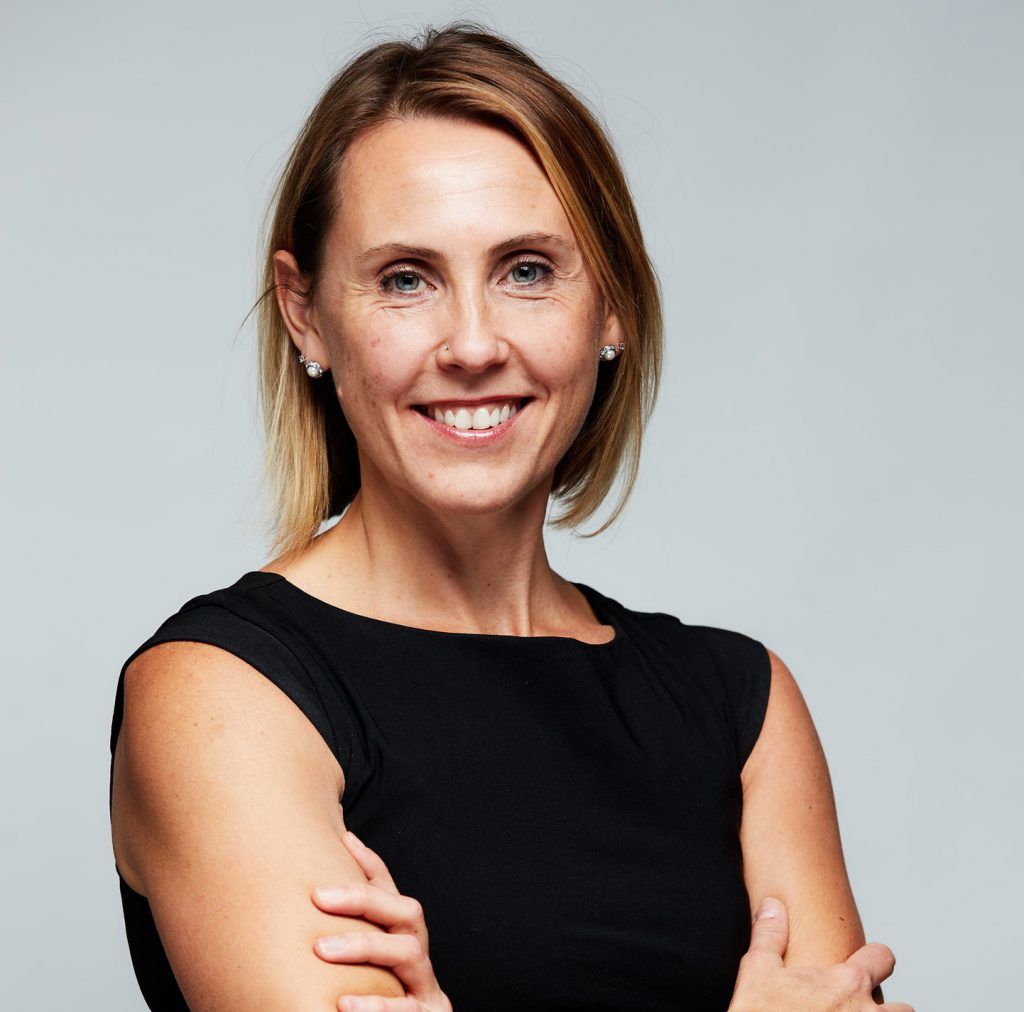

share
Related Articles
